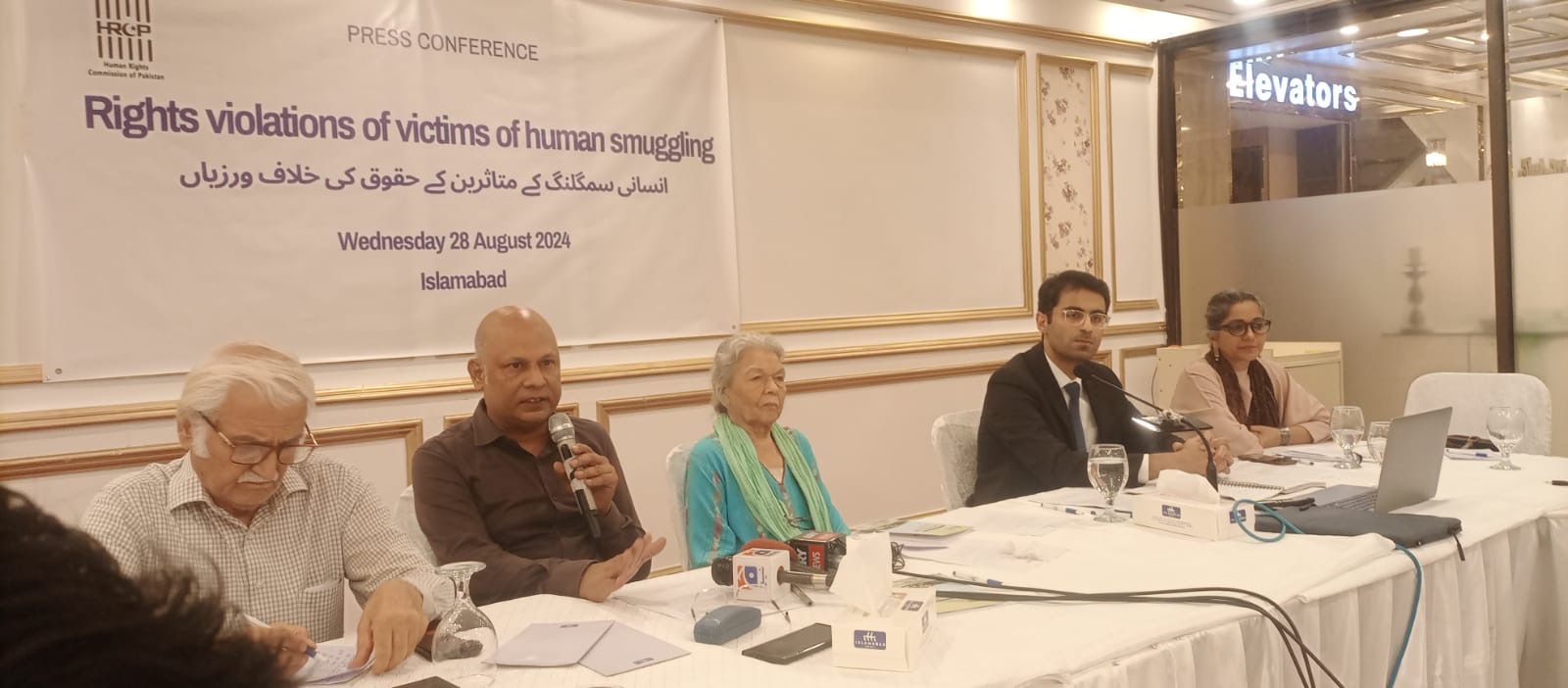 The Human Rights Commission of Pakistan (HRCP) has called urgent attention to the rights violations endured by irregular migrants in its recently released report, Perilous Passage: Human Smuggling in Pakistan, produced under the prestigious Fakhruddin G. Ebrahim Fellowship.
The Human Rights Commission of Pakistan (HRCP) has called urgent attention to the rights violations endured by irregular migrants in its recently released report, Perilous Passage: Human Smuggling in Pakistan, produced under the prestigious Fakhruddin G. Ebrahim Fellowship.
The report seeks to reconceive human smuggling as a serious human rights violation issue and not merely as a transnational crime, given that victims of human smuggling are vulnerable to torture, extortion, abuse, blackmail, imprisonment, and even death. It argues that irregular migration through human smuggling networks is almost always an act of economic desperation. However, the widespread belief that migrants choose to cross borders illegally—and therefore consent to the dangers of the journey and accompanying exploitation—has meant that human smuggling has not received the same attention as other exploitative practices such as human trafficking.
Documenting the journey of an irregular migrant who approached a human smuggling network to make the perilous journey from Punjab to Turkey (overland through Balochistan and Iran), the report observes that unemployment, lack of opportunity, poverty, insecurity and conflict are the primary drivers of irregular migration out of Pakistan. Human smuggling agents are, meanwhile, highly skilled at identifying easy marks and ‘selling’ the journey to young, vulnerable individuals. The highly organized and structured operations of human smuggling networks resemble those of criminal enterprises. These networks are also self-perpetuating, with many former migrants becoming human smugglers in turn.
Although the Prevention of Smuggling of Migrants Act 2018 authorizes the FIA to investigate and crack down on human smuggling, HRCP’s report argues that transnational operations of such a magnitude would not be possible without the knowledge and possible complicity of the FIA.
The report’s findings emphasize the need for Pakistan to ratify and implement the Protocol against the Smuggling of Migrants by Land, Sea and Air. Migrant-destination countries, however, also bear responsibility for protecting the rights of irregular migrants. The Prevention of Smuggling of Migrants Act 2018 should be amended to make it more human rights-centric by addressing the abuses faced by victims before and during their journey.
The FIA must also be reformed to ensure that it meets its responsibilities under the 2018 act, with added scrutiny of FIA officials to curb the prevalent practice of corruption, which allows human smuggling networks to operate with impunity. In the long term, the state must improve economic conditions and provide better opportunities to reduce the pressure to migrate illegally.
Sub Editor : Nosheen